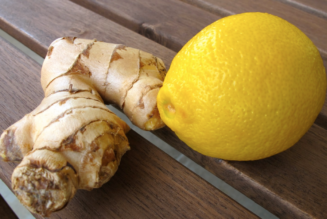The Healing Power Of Spices
Five magic spices to help improve your respiratory and digestive health
Eating all the wholesome and healthy foods in the world is of little value if your body is not able to digest and absorb the nutrients in order to put them to good use. Therefore, we put together a list of top 5 healing spices to help improve both your respiratory and digestive health.
Organic Digest Tone (Triphala Plus)
Good health depends on strong, efficient digestion.
Want to know how to use cardamom?
Top 5 Healing Spices…
1. Ginger called ‘vishvabheshaja’ – “Universal Medicine”
Ginger effectively works on digestive and respiratory systems and is therefore useful in managing cough, asthma, bronchitis, allergies and congestion. Ginger is also well known for improving digestion and helping to relieve abdominal cramps and indigestion. Ginger is also considered good for arthritic conditions and the local application of dry ginger paste is used for sinus headaches and painful joints (except burning sensation and redness).
2. Cardamom is the king of digestive stimulants.
Cardamom has well known beneficial effects on the digestive, respiratory and circulatory systems. It’s thought that cardamom helps to detoxify some of the undesirable effects of caffeine in coffee. Cardamom also helps to improve digestion, helps alleviate nausea and vomiting, belching, and even effective in relieving colic. Cardamom acts as an appetizer, deodorant, digestive and has expectorant properties therefore useful in cough and asthma.
3. Basil (especially Holy Basil, Tulsi)
Basil acts mainly on the respiratory system. Basil is an effective expectorant therefore useful for productive cough. It helps to removes excess mucus from the lungs and nasal passages. Similarly, Basil is effective for colds, sinus congestion, headaches and even has antibacterial properties. Of course, Basil also helps to stimulate digestion.
Organic Tulsi
Tulsi (holy basil) has been used for thousands of years and helps to support a healthy respiratory system, including lung health.
4. Black pepper called Marich in Sanskrit, the name for the sun.
Black pepper works mainly on the respiratory, digestive and circulatory systems. It helps to reverse sluggishness and reduces mucus secretions. Black pepper is a powerful appetite and circulatory stimulant. Therefore, black pepper is considered useful in loss of appetite, indigestion and sluggishness.
5. Pippali called Chapala (giving instant action).
Pippali works on the digestive, respiratory, reproductive system. It helps to improve appetite and metabolism while helping to rid the body from toxins. Pippali is useful in colic, indigestion, liver and spleen disorders (i.e. enlargement of liver). Pippali has expectorant actions and is considered beneficial in managing bronchitis, asthma, laryngitis and productive cough. It’s used as a tonic in tuberculosis, works as an aphrodisiac, reduces seminal debility, and even eseful in painful labor; under the guidance of a qualified professional.
About The Author …

Maryna Stasiuk is a Certified Ayurvedic Practitioner and Yoga counselor. She started her Ayurvedic journey more than five years ago. Experienced in management of chronic as well as acute health conditions, Maryna follows traditional Ayurveda in her daily life and professional practice. She believes in power of Ayurveda as a natural and comprehensive approach for health management.
You can contact Maryna Stasiuk through her Facebook page: Ayurvedic Way
Disclaimer
The sole purpose of these articles is to provide information about the tradition of ayurveda. This information is not intended for use in the diagnosis, treatment, cure or prevention of any disease. If you have any serious acute or chronic health concern, please consult a trained health professional who can fully assess your needs and address them effectively. If you are seeking the medical advice of a trained ayurvedic expert, call or e-mail us for the number of a physician in your area. Check with your doctor before taking herbs or using essential oils when pregnant or nursing.



![Female Health: Amenorrhea [cessation of menses] – An Ayurvedic Perspective](https://healthyayurveda.com/wp-content/uploads/2015/07/1.-Amenorhea--327x219.png)




